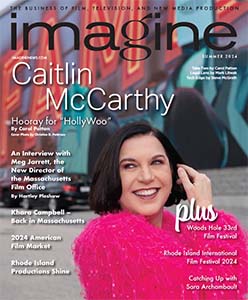 I hope so. Movies, by their nature, are studies in economy, in emotions under-expressed, in showing not explaining. The best writing in film is subtext, leaving the audience to fill in the blanks.
I hope so. Movies, by their nature, are studies in economy, in emotions under-expressed, in showing not explaining. The best writing in film is subtext, leaving the audience to fill in the blanks.
Audiences, even if they don’t know it, want to be part of the process. They want to figure things out; they want to be surprised; and they don’t want to be lectured or pandered to. Every word counts, I tell my writers, every semicolon and pause. And it’s the pauses that count the most. It’s like a good song that gives the melody room to breathe, meaning what’s not in the way? Right, the words.
We have an exercise we play in my workshops called the Shadow Game. Flip through your script and find the dark areas, not in emotion but, literally, in black ink. Start with Action Description. If you have enough shaded area on any given page to make a thunderhead, you’re saying too much. Why does it matter? Three reasons:
One, it’s impenetrable; it takes work to read; it’s not a novel. Lean and mean would be nice. Take a full page Description and cut it in half. Take a half page and make it a quarter. Go ahead; I’ll wait.
Two, screenwriting is basic arithmetic. A script has to have a compelling reason to be longer than 100 pages. You’re feeling sexy at 123? Do the math. That’s at least 123 minutes of screen time and there’s a chance that you’re not shooting CITIZEN KANE (119). CASABLANCA’S 102 and a lot happens. If you play the Shadow Game and you’re seeing smog, you’re squandering page space that could be put to better use. And that includes dialogue. Because
Three, we’ve succeeded in dumbing down our culture to the point that nobody can sit still and listen. Our attention span is, what, the length of a video for a three-minute song? That’s what I used to teach but I no longer believe it. How long’s a Tweet? How about Snapchat? It’s not necessarily a bad thing but it’s a true one and if you want a character to ramble on in great clouds of monologue, he or she better be funny.
ON GOLDEN POND’s running time is 99 minutes; I’m just saying. But it’s a worthy example. It was my first screenplay and I didn’t know what one looked like or how long it was supposed to be. The movie’s producer, thinking, I’m sure, “This should be fun,” sent me off with two scripts he had lying around the office, JULIA and COMING HOME. I split the difference in their lengths and submitted my masterwork and didn’t get fired. Nothing to it, I was thinking.
Cue Hepburn. She had “ideas,” she told the director, Mark Rydell, and we spent five famous days together and the script ballooned to 184 pages. “Now what do we do?” I asked Mark when Kate had left. “Take ‘em back out,” he said. “What else?”
The American Film Institute is a fabulous proponent of movies and offers students and filmmakers’ invaluable resources. It also makes lists, the 100 Greatest, the 100 Most Something. I have a few. One of the 100 Most Inspiring Movies. 100 Greatest Love Stories. Love ‘em, proud of ‘em, but a few years ago I got another package from AFI. “Congratulations,” the letter read, “on writing one of the 100 Greatest Lines of Dialogue.” Score me, I thought, till I pulled out the certificate. It was the “knight in shining armor” speech from ON GOLDEN POND. Few things can more effectively darken my day than those lines. You know why? Because they’re unnecessary. See above, clouds over the lake.
In the stage version of ON GOLDEN POND, now playing in Buenos Aires, Madrid, Amsterdam, Bonn, Finland and Russia, those lines aren’t there, in any language. At least they better not be. I caught Stephanie Powers slipping them into a British tour two years ago and offered to close it. Because they’re not necessary.
Here’s a challenge to all my BEAUTIFUL WOMEN collaborators: find the original source material and see how economically that scene is written. The old man is rattled from being lost in the woods; his long-suffering wife consoles him with the briefest – and strongest – of affirmations. No knight, no horse, no go, go, go. The writer added the embellishment under duress. It might have been a fine teary moment and – who knows?
– part of why the actors and he won Oscars, but read the play. In the play the audience gets to fill in whatever’s not there with its own words, or silence.
Silence is golden. It speaks volumes. Say less, show more. And have your characters do the same. If the mother and son reunion in the rain is five pages, make it three. Let the viewers have their say. Most of them have had mothers and a lot are. Same with Hank when he and his wife realize their marriage is over. Most of us know that scene, too: the disappointment and defeat of a relationship’s not lasting, the heartache and regret. The reality is, the essence of the pain of parting goes without saying. See how much you can convey in how few words. Just think of the clear skies it’ll leave you to let the light shine in.
Ernest Thompson, an actor, director and the author of more than thirty screenplays, including the classic ON GOLDEN POND, for which he won an Oscar, a Golden Globe and a Writers Guild Award, offers private coaching and script analysis (ad page 30), weekend workshops at his farm in New Hampshire, and also teaches advanced acting classes in Boston and elsewhere. For more information, visit www.ErnestThompson.us.




